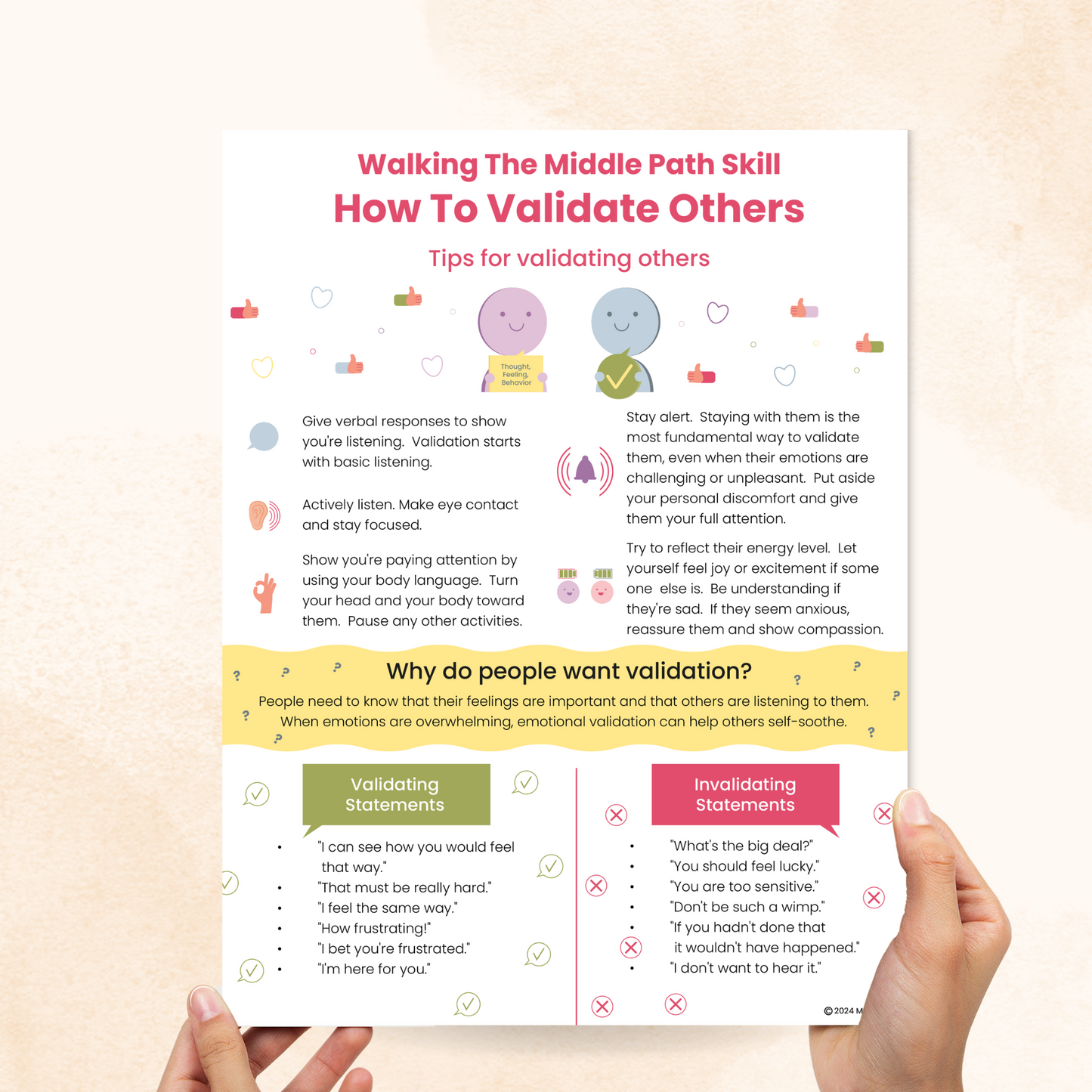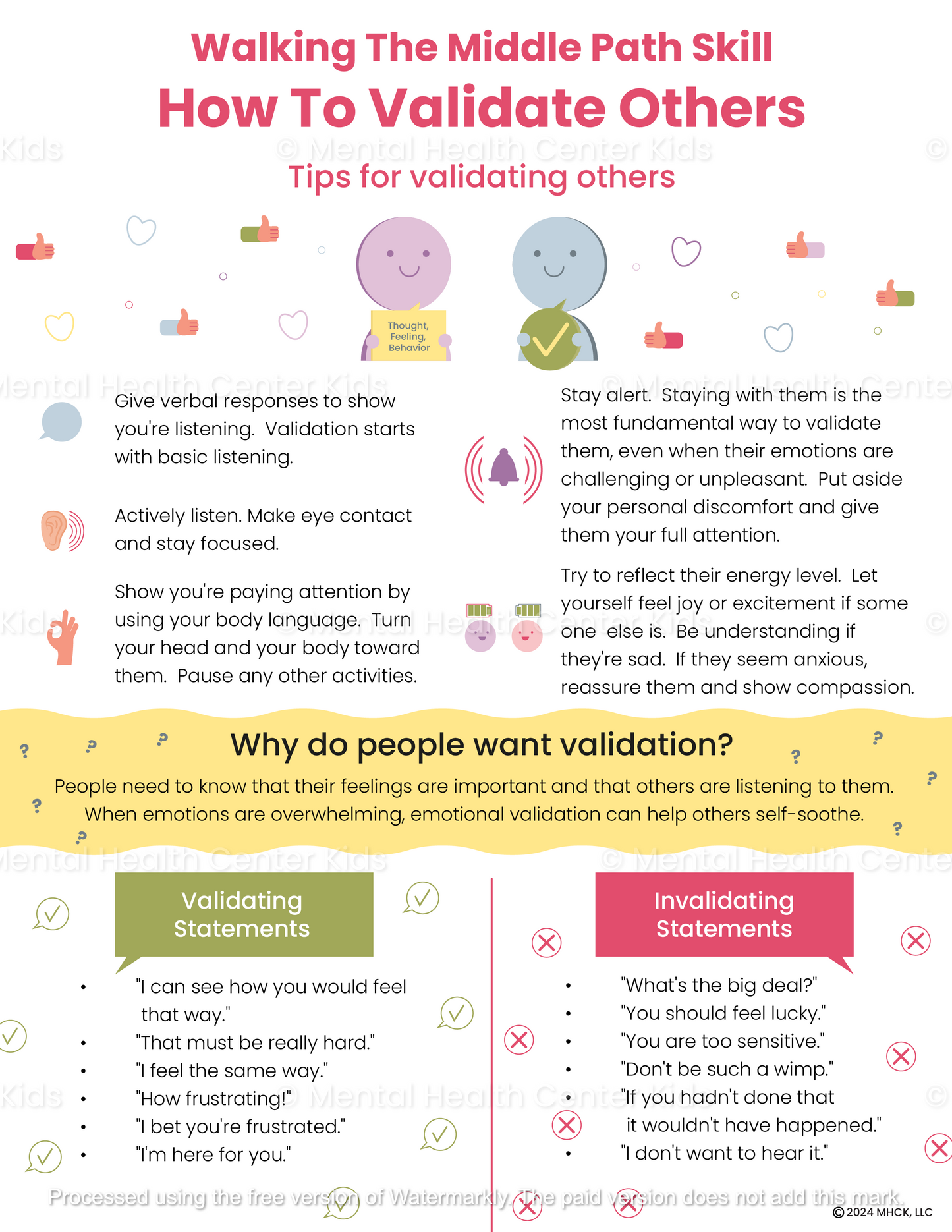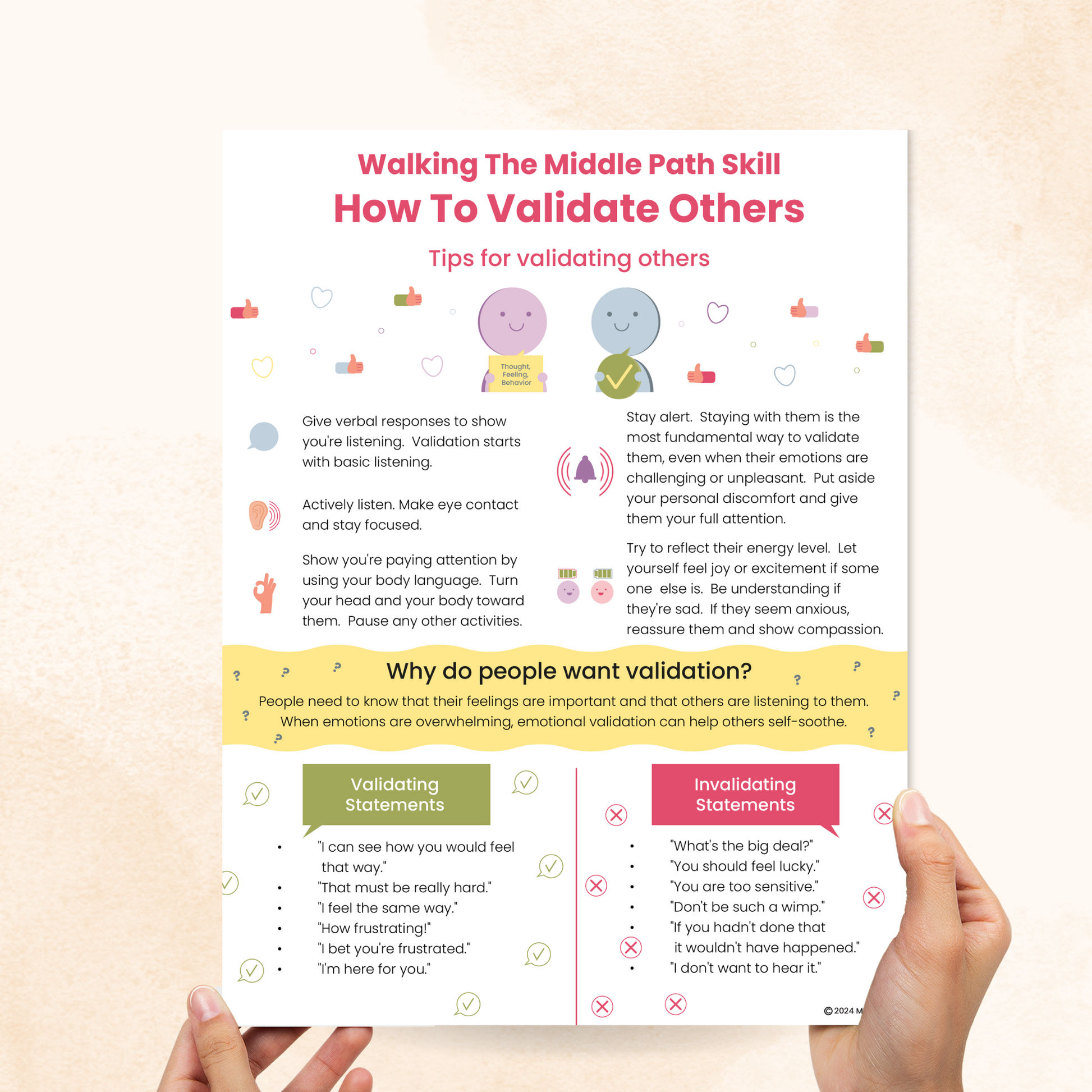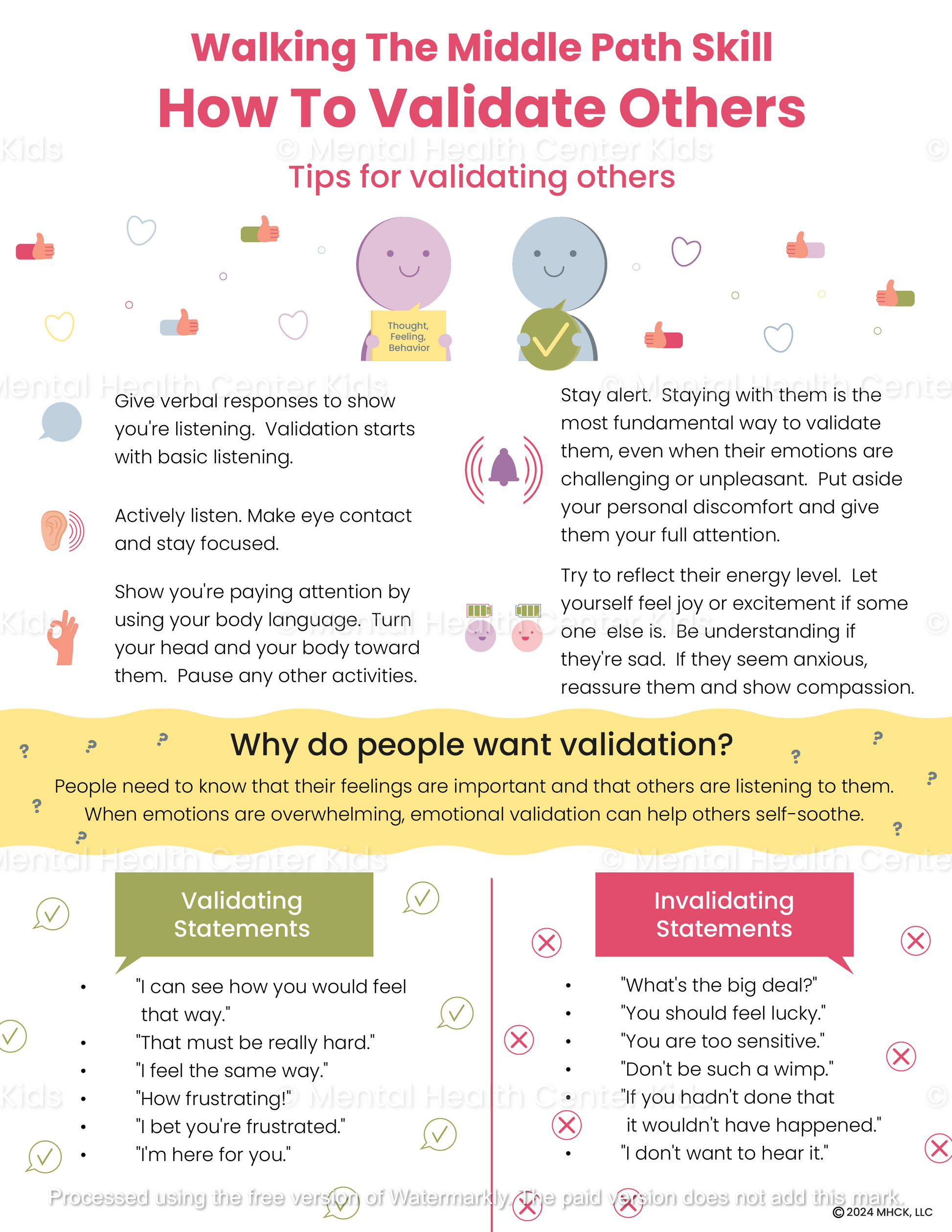DBT Validating Others Handout


Validation is vital to building trusting and supportive relationships, and is an important interpersonal effectiveness skill in Dialectical Behavior Therapy (DBT). Even when we disagree with someone, it’s still possible to validate their emotions and experiences. Mastering the art of validation allows empathy to grow and shifts a person’s energy from resistance to cooperation and understanding.
The DBT Validating Others Handout offers practical tips for validating others in different interpersonal situations. Some of these tips include active listening, using your body language to convey that you’re paying attention, and being understanding.
Practicing the techniques in the handout allows kids and teens to show kindness and compassion towards others. You can suggest exercises and activities where validation can be applied, such as during conversations with friends, family discussions, and whenever a classmate is feeling nervous about giving a presentation.
Our DBT Validating Others Worksheet can be a helpful add-on for a deeper reflection of the validation skills on this handout.
*This item is an instant digital download. A link to download your files will be emailed to you once payment is confirmed.
Want more resources like this? Check out our full catalog of DBT worksheets and handouts.
References:
- Benitez, C., Howard, K. P., & Cheavens, J. S. (2020c). The effect of validation and invalidation on positive and negative affective experiences. The Journal of Positive Psychology, 17(1), 46–58. https://doi.org/10.1080/17439760.2020.1832243
- Lambie, J., Lambie, H. J., & Sadek, S. A. (2020). “My child will actually say ‘I am upset’ . . . Before all they would do was scream”: Teaching parents emotion validation in a social care setting. Child: Care, Health and Development, 46(5), 627–636. https://doi.org/10.1111/cch.12770
- Rathus, J. H., Campbell, B., Miller, A. L., & Smith, H. (2015). Treatment Acceptability Study of Walking The Middle Path, a New DBT Skills Module for Adolescents and their Families. American Journal of Psychotherapy, 69(2), 163–178. https://doi.org/10.1176/appi.psychotherapy.2015.69.2.163
- Instant digital download
- File: PDF
- Size: 8.5" x 11"



